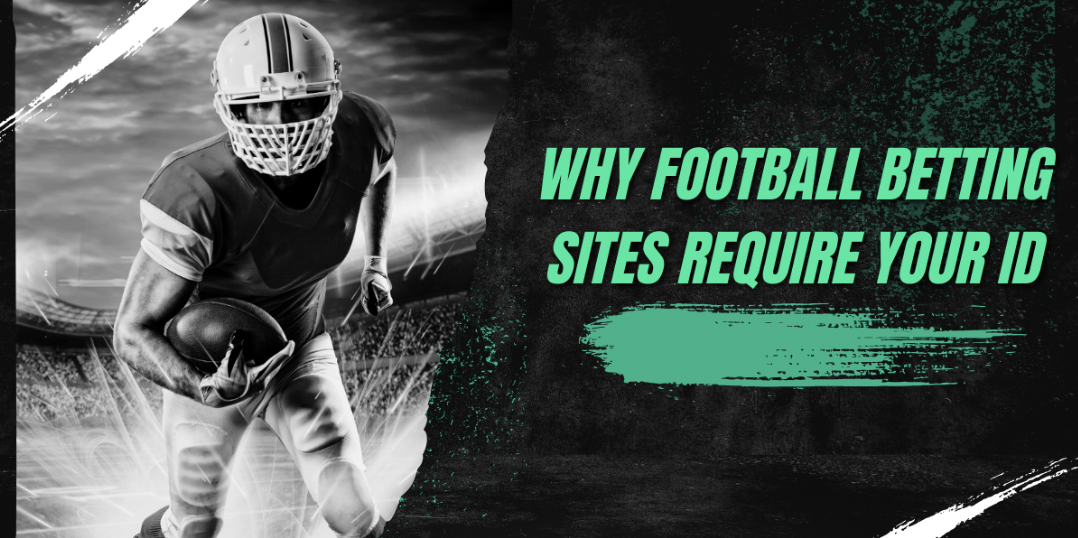
Gambling on online betting sites that do not support AML/KYC rules may seem tempting and much easier compared to signing up on football betting platforms that ask for documents. Since you do not need to reveal your ID, the risk of some third parties stealing your identity is minimal.
What’s more, you can bet on football with better anonymity, using betting not affected by GamStop which is quite popular in the UK. Finally, you avoid the boring and sometimes long process of ID verification by sending document copies and waiting for the sportsbook’s experts to make a decision.
Nevertheless, all these advantages are quite superficial, and they immediately fade into the background when you encounter a fraudulent football betting platform. Below, you can get an insight into the way bookmakers vary ID and the main reasons why you should register at sites that support AML/KYC policy.
Importance of AML/AML Rules
Compared to betting sites with no ID verification, regular ones require you to provide specific info to become a full member and start betting on football. Here is a list of the main document types and data you may be requested to provide.
- Basic info on registration. This may be your birthdate, full name, address, and other data you provided when signing up.
- ID, passport, or driver’s license. Scans or copies of these documents help the betting platform experts verify that the data you provided on registration is relevant.
- Proof of address. Some gambling platforms require you to send copies or scans of utility bills to prove your physical address.
- Banking option verification. If a bookie requires you to prove payment methods, you should confirm your bank card details (card scans or photos) or other financial instruments.
Keep in mind that some football betting sites may require you to undergo Enhanced Due Diligence if you cash out big sums or are a resident of high-risk jurisdictions.
Regulatory Compliance
It is not a secret that many jurisdictions such as UKGC have strict regulations aimed at preventing money laundering, fraudulent activity, sponsorship of terrorism, and underage gambling. Thus, the KYC procedure impacts football betting in general and helps football betting sites comply with these requirements.
Fraudulent Activity Prevention
If you follow the rules of KYC verification, you let the system know that you are who you say you are. This procedure includes checking the accuracy of all the personal details you provide, including names, banking details, addresses, sources of funds, and more.
Underage Gambling Prevention
Information about age and confirmation of this data (thanks to uploading document scans) let the system know that clients have reached the legal age for gambling. The problem of gambling teens is extremely acute in modern realities.
Currently, there are multiple ways to start betting on sports without revealing your ID and keep playing anonymously. Teenagers are especially prone to gambling addiction problems, which may lead to psycho-emotional, financial and even serious criminal consequences.
Adherence to Responsible Gambling Rules
KYC is an important part of broader efforts to promote responsible gambling. Because football bookmakers know their customers, they can understand and anticipate potential problems that they may face. This allows for timely response and prevention. AI algorithms have become a serious supplementary tool in this, helping to identify vulnerable football bettors based on behaviour patterns, time spent on the site, etc.
Customer Relationship
It is indisputable that the modern football betting industry is a highly competitive environment, with numerous platforms trying to get their place under the sun. They do it using different approaches, from cutting-edge technologies to an immense collection of available banking options.
However, trust is one of the key aspects that really can boost customer loyalty and anchor them on the platform for a long time. Thanks to KYC, football betting sites can strengthen customers’ trust, ensuring the security of their transactions. This directly affects the platform’s reputation, positive feedback on review sites, and audience expansion.
Conclusion
While bypassing ID verification might seem convenient, the risks far outweigh the benefits. Unregulated sites offer little protection against fraud or scams, and it might be harder to make accurate predictions based on the information they provide. Verifying your ID protects you when betting on the next football match and the platform. KYC compliance ensures responsible gambling practices and prevents underage participation. Ultimately, ID verification fosters a secure and trustworthy environment for all football betting fans.



